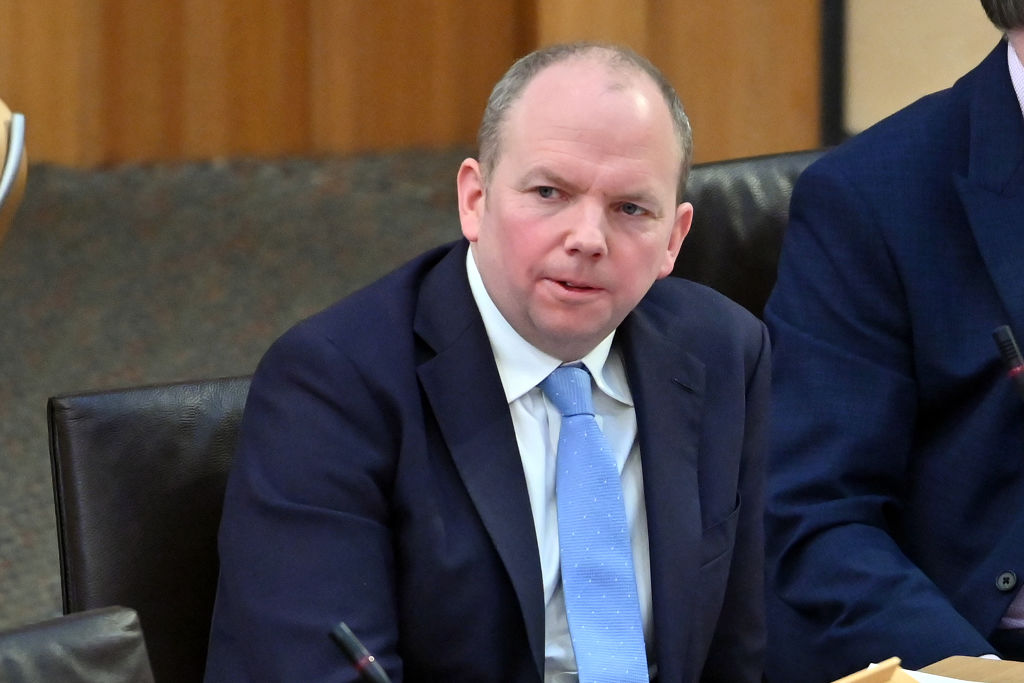Finally, Rishi Sunak has put a half-decent Cameron in the House of Lords. In raising Donald Cameron to the peerage and appointing him parliamentary under-secretary of state for Scotland, the Prime Minister has poached one of the sharpest minds in the Scottish Parliament. Cameron has been an MSP for Highlands and Islands for the past eight years and distinguished himself with forensic speeches dissecting SNP government legislation, drawing on his experience as an advocate (a Scottish barrister). Even opponents struggle for a bad word to say about him, an uncommon state of affairs in the bitter and tribal world of Scottish politics.
Cameron’s style is patrician and so are his politics. He is, as far as I can tell, the only member of the government to head up his own Scottish clan. Not one of those deals where you pay twenty quid and get a certificate and half an inch of mulch somewhere north of Strathspey. No, he’s an honest-to-goodness lochiel (or clan chief) — the 28th lochiel of Clan Cameron, styled in Gaelic as Mac Dhòmhnaill Duibh (‘Son of Black Donald’), a 15th century warlord whose descendants led their men into the fray at Killiecrankie and Culloden, and later fought at Waterloo, the Boer and both world wars. Now the Camerons are faced with their most treacherous battlefield yet: the Scotland Office.
Donald Cameron is a thinker, not a fighter. (That said, the clan was loyal to the Stuarts, so he’s one for the watching.) He is open-minded, pragmatic, and seemingly allergic to ideology. He approaches both opponents and their ideas with charity and good grace. His background could not be more establishment — Harrow, Oxford, law — but there is a flicker of radicalism there and, while I wouldn’t personally insult the man in such terms, there are those who consider him somewhat of an intellectual.
All of which is to say he’s wetter than August in Argyllshire. Dripping wet. Sopping wet. Ideal to have around during a hosepipe ban. Now, this might prompt a weary rolling of eyes among Tory right-wingers: great, another liberal on Team Rishi. But I would caution against despair, not only because Cameron is exactly the sort of man you want at the Scotland Office, but because he’s the sort of man you need in government. I don’t dispute that, for traditional Conservatives, this government’s gravest sin is wasting 14 years in power, upholding and even advancing the Blairite neo-orthodoxy.
But I would argue that this is not the product of moderation, reflection and curiosity — very worthwhile values to have in government — but of a surfeit of politically inert careerists who wanted power but had neither the appetite nor the ability to use it. Cameron will never be a darling of the membership, but you’ll notice how many of those darlings rode their right-wing panto act onto the frontbench, did nothing to reverse the maladies they railed against, and now complain about the government’s ideological torpor from the comfort of television studios.
I wanted to write this note for Spectator readers outside of Scotland, to give them an idea of what kind of politician Donald Cameron is and what they might expect from him as a minister. But I also wanted to write for an audience closer to home. In taking up his position in the Lords, Cameron has resigned his Scottish Parliament seat. Whenever I write about the generally low calibre of MSP at Holyrood, I always throw in a ‘with some honourable exceptions’, and Cameron is one of a handful of characters I have in mind. Along with the SNP’s Kate Forbes, Labour’s Michael Marra, and a few others, Cameron stands out amid the pervasive mediocrity and dull-minded party-line obedience.
A senior Tory MSP told me last night: ‘We will miss him in Holyrood but he deserves this and will play an important role in the Scotland Office and the Lords.’ I’ve no doubt his colleagues will miss him, and no doubt he has earned this posting with his talent and hard work, but his departure will further reduce the quality of debate and scrutiny in the Scottish Parliament. First-class MSPs have tended to be rare beasts at Holyrood but they seem to be becoming endangered species. The Scottish Parliament turns 25 this year, and in that time the political conversation has consistently been about what additional powers it should have. The conversation we need to have, a much more difficult one, is why this body fails to attract men and women of insight and ability — and how we go about rectifying that.







Comments